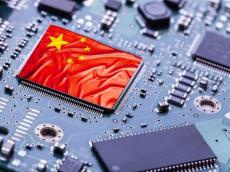|
|
TODAY.AZ / World news
China makes progress in its work on abandoning US technology in production of chips
04 June 2024 [17:58] - TODAY.AZ

By Alimat Aliyeva
China is moving forward in its efforts to eliminate dependence on American technology in the manufacture of chips. This is reported by The Wall Street Journal newspaper, Azernews reports.
As an example, the publication cites the activities of one of the largest manufacturers of chips and microelectronics in China, Semiconductor Manufacturing International Corp. (SMIC). The newspaper notes that although SMIC's production processes may be "several generations late" compared to leaders in this field, such as Taiwan's Taiwan Semiconductor Manufacturing Company (TSMC) or South Korea's Samsung Electronics, the Chinese company is "intensively introducing domestic semiconductor manufacturing equipment."
At the same time, China's dependence on American instruments is decreasing, a source familiar with the matter told the newspaper. "By banning everything, you force the sleeping lion to wake up," a former TSMC employee said in an interview with The Wall Street Journal, referring to export restrictions in the field of semiconductors from the United States.
As the publication emphasizes, the desire to produce chips using its own mechanisms will protect China from the sanctions of the United States, which, together with the Netherlands and Japan, have limited the supply of semiconductor manufacturing technologies to China. These measures, on the one hand, undermined China's production capabilities in this area, on the other hand, prompted it to invest more funds, develop and experiment, the newspaper writes.
To fully localize the production of chips, China will need not only to assemble the equipment itself. All its components, as well as the semiconductor wafers themselves, must also be Chinese, The Wall Street Journal points out. As a breakthrough on this path, the publication mentions the Huawei Mate 60 smartphone, which was introduced in August 2023. The mobile device is equipped with a 7-nanometer Kirin 9000S microprocessor, which was developed by Huawei's subsidiary HiSilicon and produced by SMIC. In September 2023, Bloomberg, citing data from its own investigation, stated that the chip inside the smartphone was "only a few years" behind advanced American developments.
On October 16, 2023, the U.S. Department of Commerce announced the blacklisting of 13 Chinese companies, as well as the expansion of export restrictions on the supply of chips to China. At the end of January of the same year, it was reported that the Netherlands, the United States and Japan had reached an agreement to limit the supply of semiconductor manufacturing technologies to China. These countries fear that the chips could be used to create advanced military-technical equipment.
URL: http://www.today.az/news/regions/249198.html
 Print version
Print version
Connect with us. Get latest news and updates.
See Also
- 14 February 2025 [23:55]
Sweden builds first gas station with staff designed exclusively for electric vehicles - 14 February 2025 [23:27]
74 new beach areas create in Montenegro - 14 February 2025 [22:49]
Norway open protected rivers to hydroelectric power plants - 14 February 2025 [22:24]
Porsche cut almost 2,000 jobs in Germany amid falling demand for electric vehicles - 14 February 2025 [21:41]
TikTok mobile app returns to Apple and Google stores in USA - 14 February 2025 [21:41]
TikTok mobile app returns to Apple and Google stores in USA - 14 February 2025 [21:21]
Japanese government release 200,000 tons of rice from state reserves - 14 February 2025 [20:47]
United States intends to supply India with F-35 - 14 February 2025 [20:11]
Azerbaijan Trade House in Lahore opens new chapter in economic relations with Pakistan - 14 February 2025 [09:00]
American Chevron cut up to 20% of employees by 2027
Most Popular
 Armenians are preparing for a "crusade" against Baku – hopes for the United States
Armenians are preparing for a "crusade" against Baku – hopes for the United States
 President Ilham Aliyev held expanded meeting over lunch with Somali President
President Ilham Aliyev held expanded meeting over lunch with Somali President
 Foreign Ministers of China, South Korea and Japan hold meeting in Tokyo
Foreign Ministers of China, South Korea and Japan hold meeting in Tokyo
 Pashinyan vs Dashnaks: are new purges starting in Armenia?
Pashinyan vs Dashnaks: are new purges starting in Armenia?
 Next batch of humanitarian aid sent to Ukraine
Next batch of humanitarian aid sent to Ukraine
 ANAS announces plan of events to mark 100th anniversary of Elm Publishing House
ANAS announces plan of events to mark 100th anniversary of Elm Publishing House
 MÜS?AD outlines strategic steps for economic resilience
MÜS?AD outlines strategic steps for economic resilience
